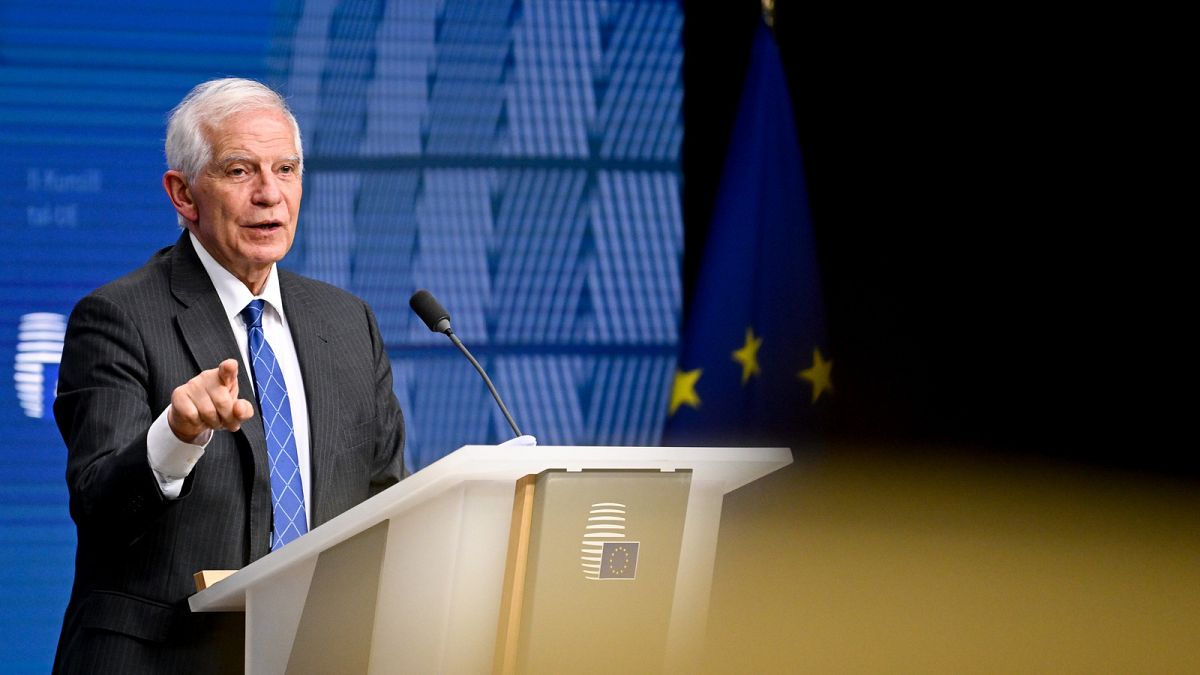The European Union’s High Representative for Foreign Affairs, Josep Borrell, has taken a significant step by convening Israeli foreign minister Israel Katz to discuss the country’s compliance with its human rights obligations under the EU-Israel cooperation agreement. This move comes after a unanimous backing by all 27 EU foreign ministers during a meeting in Brussels. The purpose of the meeting is to discuss the situation in Gaza, including the respect of human rights, and how Israel plans to comply with the International Court of Justice ruling on ceasing its offensive in Rafah. This decision was influenced by Spanish Prime Minister Pedro Sánchez and former Taoiseach Leo Varadkar’s plea for an urgent review of the EU-Israel Association Agreement due to concerns regarding Israel’s military campaign and potential violations of human rights and international law.
Despite the unanimous support from foreign ministers, there were reservations expressed by two member states, wanting clarity on other options available to the EU before convening Israel. However, Belgian foreign minister Hadja Lahbib, whose government holds the rotating six-month presidency of the Council of the EU, expressed hope that the Association Council could be held within one month. The EU-Israel Association Agreement, established in 2000, serves as the legal basis for the EU’s trade relations with Israel. It emphasizes cooperation based on respect for human rights and democratic principles. Given that Europe is Israel’s main trading partner, accounting for nearly a third of all commerce, the Agreement is considered a powerful tool for the EU to pressure Netanyahu’s government to cease its offensive in Gaza.
Some member states, such as Ireland, have advocated for the EU to take a firmer stance and utilize the tools at its disposal to discourage Israel from continuing its offensive in Gaza. Irish Foreign Minister Micheál Martin revealed that there were discussions on the possibility of sanctioning Israel during an EU meeting. This marks a significant shift in the EU’s approach and reflects a growing concern over the humanitarian crisis in Gaza. Martin emphasized that adherence to human rights and international humanitarian law is fundamental to the European Union’s values, and current events are underscoring the importance of addressing these issues.
The EU-Israel Association Council serves as a forum for discussing bilateral cooperation between the EU and Israel. By convening this council, the EU aims to engage in constructive dialogue with Israel regarding its compliance with human rights obligations. The decision to convene Israel underscores the EU’s commitment to upholding human rights and democratic principles, as outlined in the Association Agreement. This meeting also highlights the EU’s role as a key player in promoting peace and stability in the region, particularly in addressing the ongoing conflict in Gaza.
The Association Council meeting provides an opportunity for the EU to raise concerns about Israel’s military campaign in Gaza and its potential violations of human rights and international law. Through diplomatic channels and dialogue, the EU seeks to encourage Israel to adhere to the International Court of Justice ruling and cease its offensive in Rafah. The EU’s engagement with Israel on these critical issues demonstrates its commitment to upholding human rights and promoting peace in the region. By leveraging the Association Agreement, the EU has a powerful tool to influence Israel’s actions and advocate for a peaceful resolution to the conflict in Gaza.
In conclusion, the convening of the EU-Israel Association Council is a significant diplomatic move that underscores the EU’s commitment to promoting human rights and peace in the region. By engaging with Israel on its compliance with human rights obligations, the EU is using its leverage as a major trading partner to address concerns over Israel’s military campaign in Gaza. As the situation in Gaza continues to deteriorate, it is crucial for the EU to take a firm stance on upholding human rights and international law. The Association Council meeting provides an opportunity for constructive dialogue and engagement with Israel on these pressing issues, demonstrating the EU’s dedication to promoting peace and stability in the region.






























